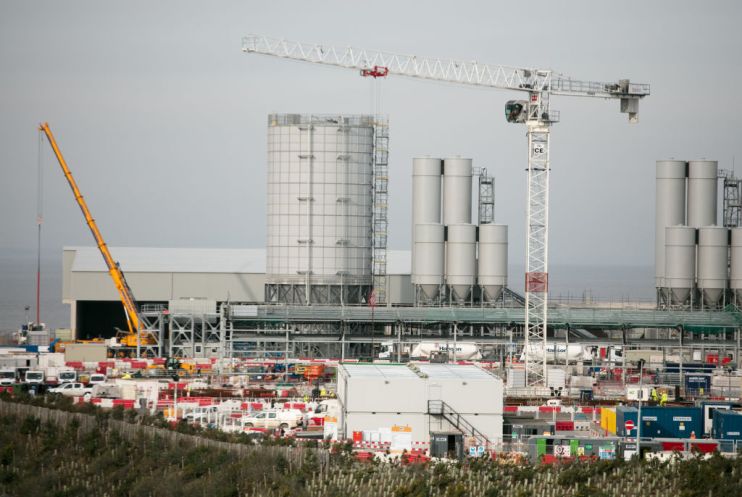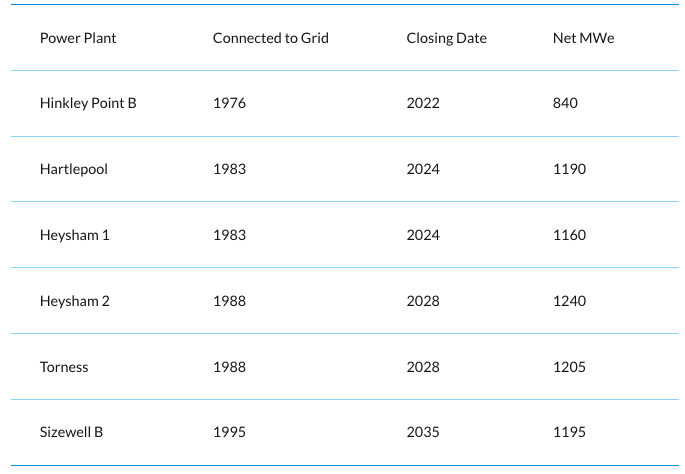Government weighs up extending life of Hinkley Point B as energy crisis deepens

Business Secretary Kwasi Kwarteng is open to extending the life of nuclear power plant Hinkley Point B.
This is to ensure the security of the UK’s energy supplies this winter following Russia’s invasion of Ukraine, and ensuing volatility across global energy markets.
The UK has already announced plans to wean itself off Russian energy imports, starting with the phase out of Kremlin-backed coal and oil supplies.
The government has consistently stated it has sufficient supplies and plans in place to stave off an energy crisis this winter.
Nevertheless, nuclear industry sources told The Observer that Kwarteng is looking to prevent a faster-than-expected decline in its fleet of atomic reactors.
This means he could be persuaded to back an 18-month expansion of Hinkley Point B’s operational commitments.
Such a plan would keep 1GW of electricity generation on the National Grid in the short-term, replacing the reliance on gas-fired generation for up to 1.5m homes.

However, Hinkley Point’s owner EDF Energy would have to produce a safety case for extending the life of a power station that was hooked up to the grid in 1976.
Its closure was previously postponed by seven years in 2012 and was set to finally stop generating electricity this year.
It is one of six planned across the UK for closure by 2035.
Soaring gas prices has driven uncertainty in the market, and while the government’s long-term energy strategy chiefly focuses on ramping up renewables, City A.M. understands ministers have requested Drax Power Station keeps it coal power units on standby this winter.
The government is also weighing up reintroducing fracking, and has commissioned a scientific review, while its commitments to expanding North Sea oil and gas explorations represents a revival for the sector.
Dr. Peter Bird, managing director at Berkeley Research Group, told City A.M. earlier this year that significantly expanding the lifespan of nuclear power plans designated for closure would be very challenging.
He said: “Our understanding is that the ageing experience with the predominant Advanced Gas-cooled Reactor technology makes this extremely difficult.”
“Life extension remains a challenge and can only provide a short-term contribution to energy security and decarbonisation. The ageing reactors must be replaced by a new fleet – and this requires a proper programme to optimize timely delivery and cost.”
Nuclear power key to domestic energy security strategy
Prime Minister Boris Johnson has called for a “big new bet” on nuclear power, praising the French fleet and criticising the New Labour government for failing to invest properly in the energy source.
Gordon Brown’s government green-lit the sale of British Energy to EDF Energy in 2008 for £12bn, and nuclear power has since declined to 16 per cent of the country’s energy mix.
The government is now aiming to quadruple nuclear power from 6.9GW to 24GW by 2050, and has set up a new body, Great British Nuclear to set up new projects.
Last month, Johnson claimed “nuclear is coming home” with commitments to build a new reactor every year.
So far, the government has committed to Hinkley Point C – a new 3.2 GW plant set for opening in the middle of the decade – alongside Sizewell C, and has also backed plans for small, modular reactors designed by Rolls-Royce.
Johnson recently called for a new plant at Wylfa in Angelsey, North-West Wales.
Meanwhile, Hinkley Point C announced 4,000 additional jobs last week, taking the total number engaged in the £23bn project to 22,000 .
Tom Greatrex, chief executive of the UK Nuclear Industry Association, has called on the government maintain its investment commitments
He said: “The government’s energy security strategy envisions deploying much more nuclear power, replicating these benefits for communities up and down the country. That is why we urge the government to take the necessary steps on siting and financing new nuclear capacity to make that vision a reality.”